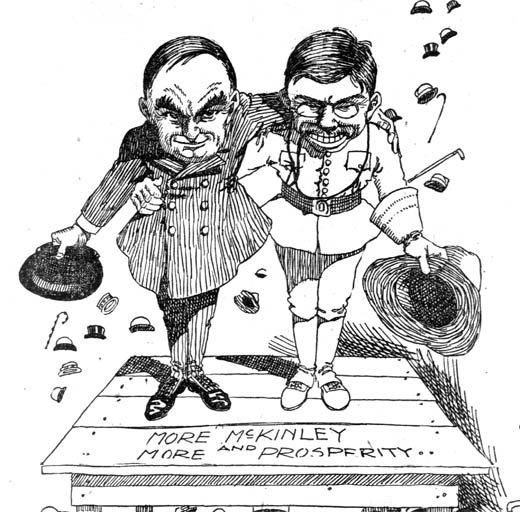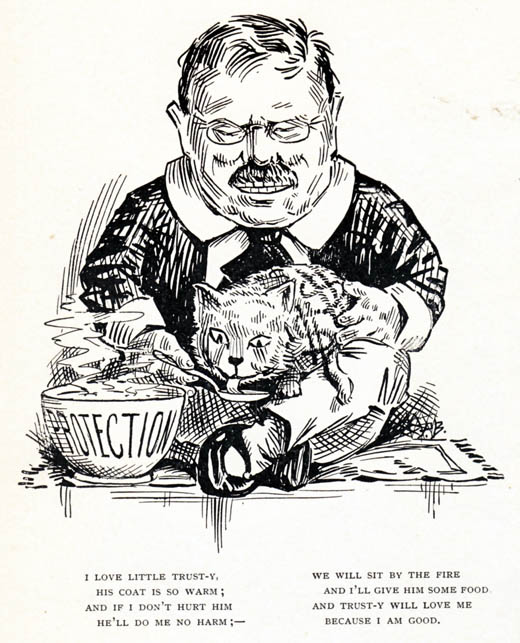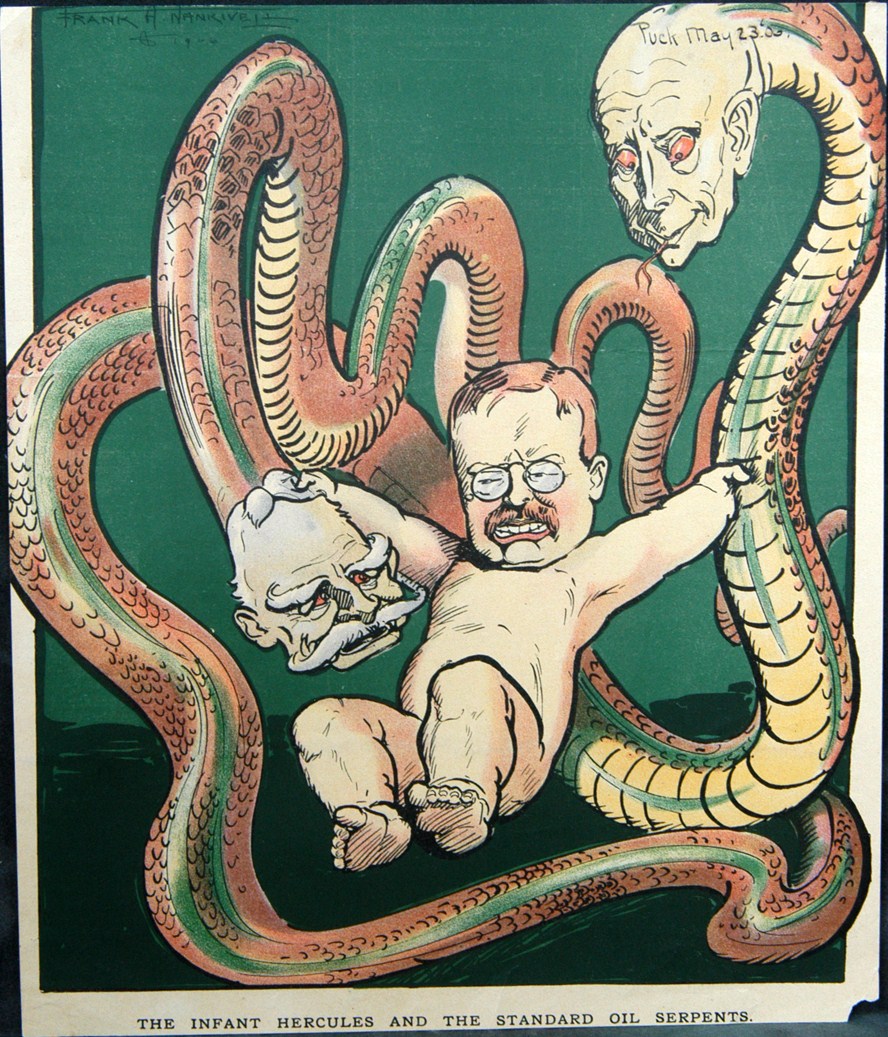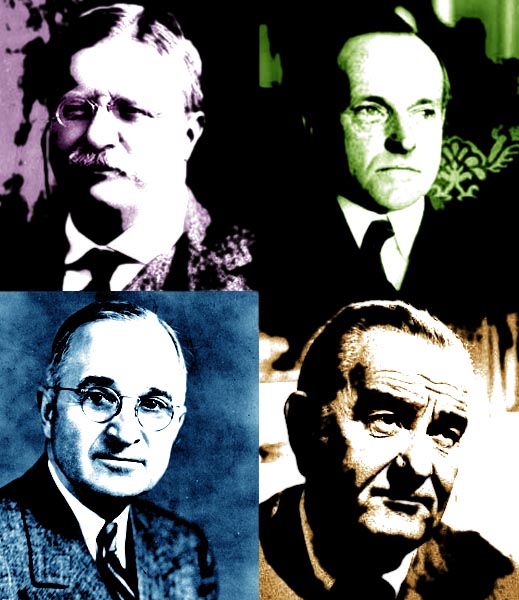Teddy Roosevelt's Exceptional Abilities
 Tuesday, May 21, 2013 at 5:02PM
Tuesday, May 21, 2013 at 5:02PM The tales drawn from Teddy Roosevelt's vigorous life characterize American badassery at its best. As a statesman, soldier, rancher, author, sportsman and President, Roosevelt successfully triumphed over every obstacle he encountered, and then some. The guy was practically invincible, no exaggeration. Here are some testaments to his exceptional abilities:
1. He thumbed his nose at his doctor's orders and led an active life - simoultaneously defying and astounding the medical community:
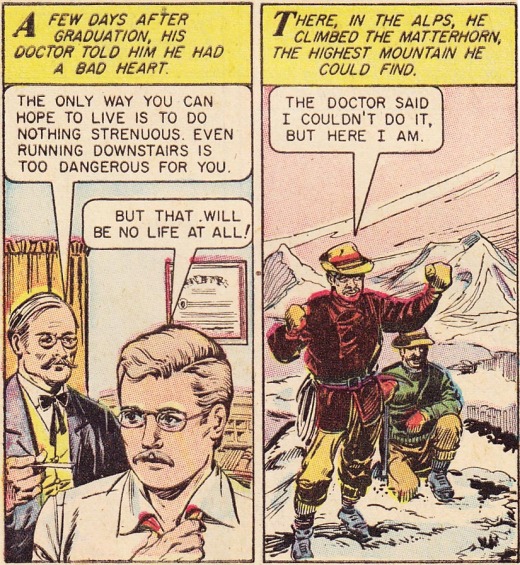
2. He never tired, even while camping. And his buddy in the background, Ferris, was clearly wiped out:
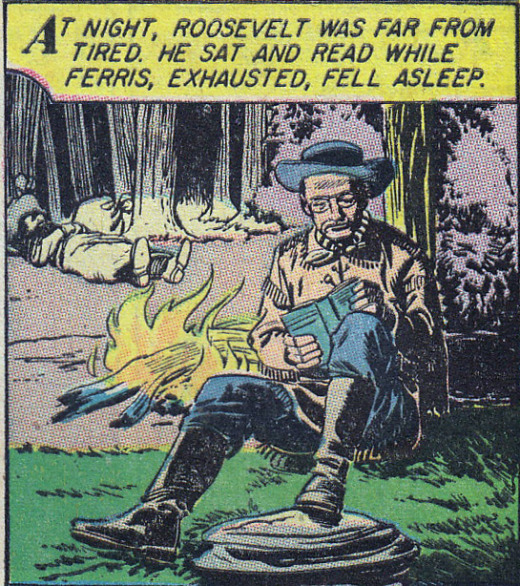
3. He brought order to the wild west long before John Wayne or Clint Eastwood could even get their pants on:
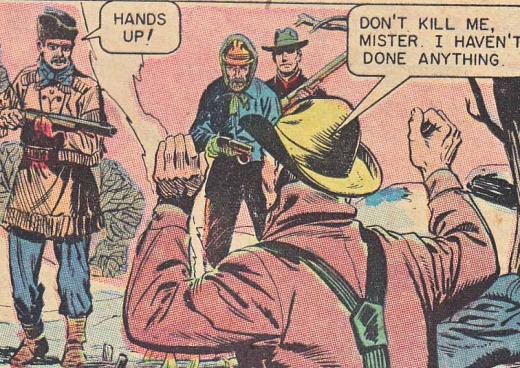
4. When necessary, he settled bar room disputes with his fist:
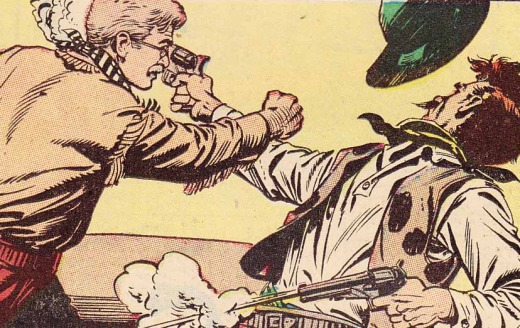
5. And he displayed great nonchalance whist doing so, because nobody likes a braggadocio:
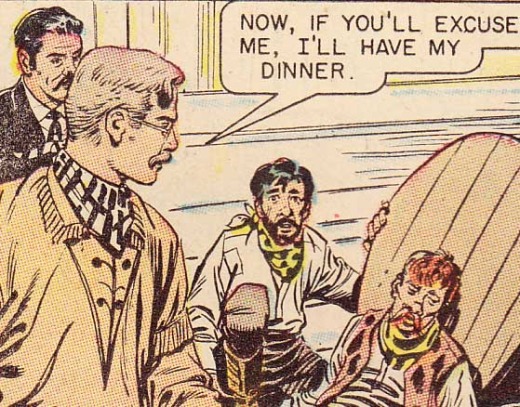
6. Always unafraid, Roosevelt charged headfirst into danger:
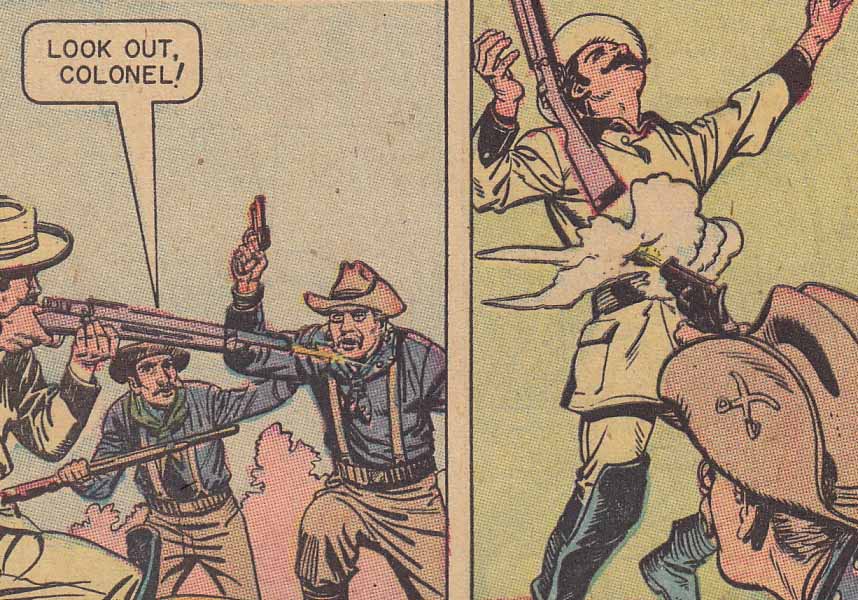
7. And was often praised for his heroics:
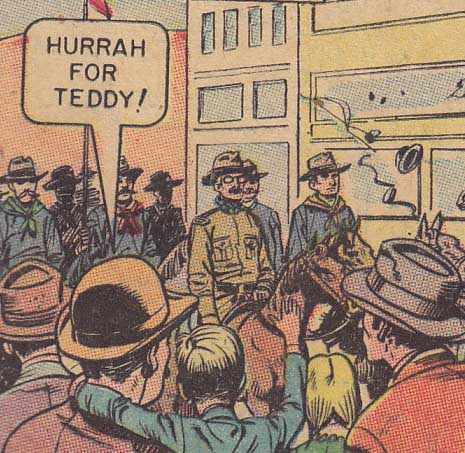
8. He was adored as a politician, because he never BS'd anybody:
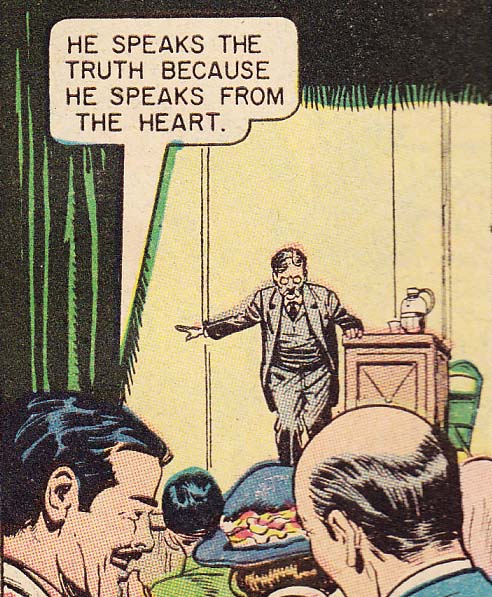
9. And he was resolute, never bowing to peer-pressure:
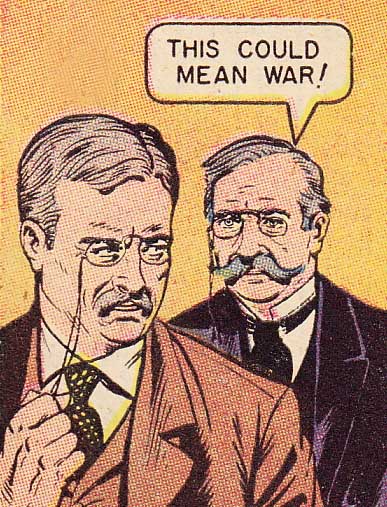
10. He could take a bullet like a man and still deliver a full speech afterwards, again defying the medical community:
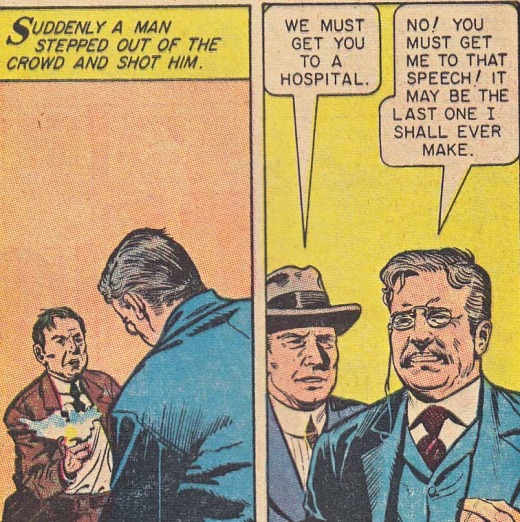
11. He could drive a submarine with precision and still admire the wildlife:
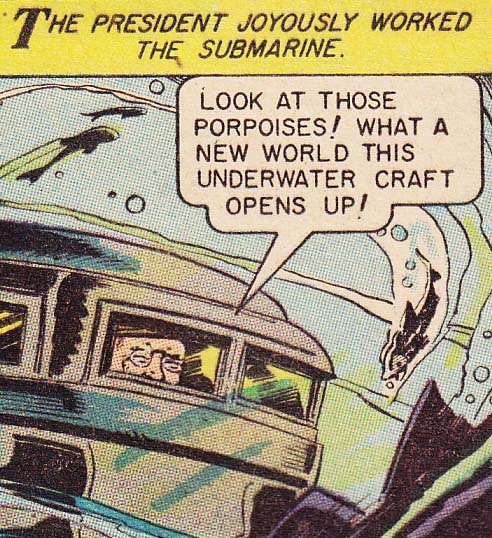 12. And he could fly a plane. He would have stayed up for longer, if he had been allowed:
12. And he could fly a plane. He would have stayed up for longer, if he had been allowed:
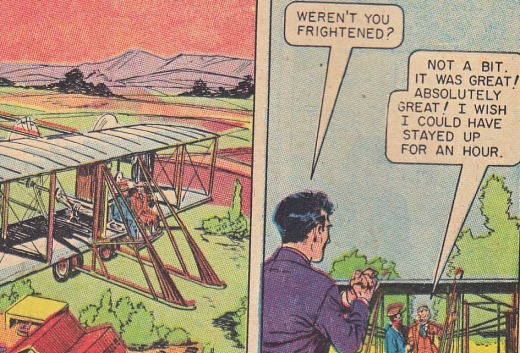
13. He didn't just "take" the train, he rode front of the engine. With a book:
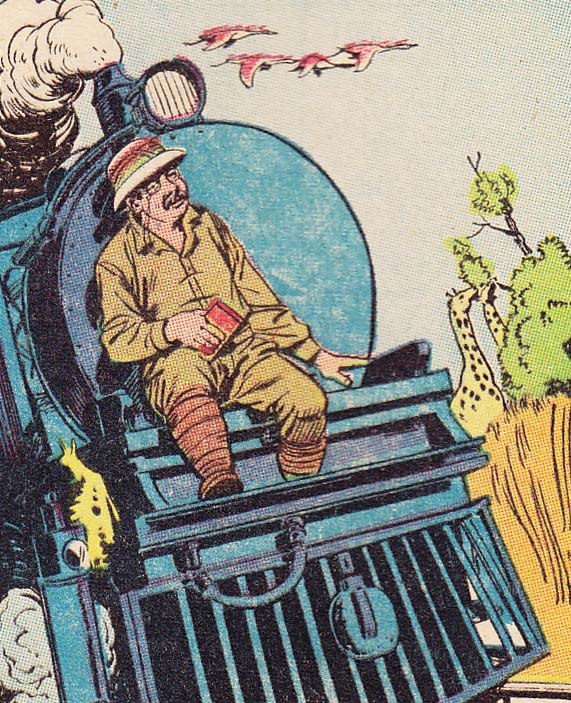
14. He killed large animals, with boyish enthuiasm:
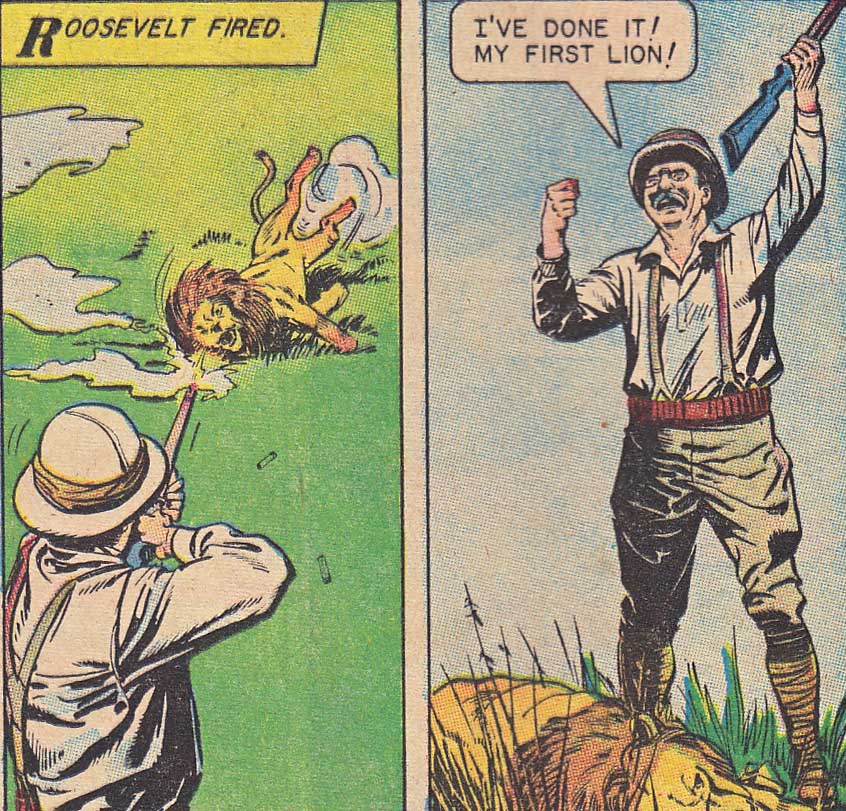
15. That bear never stood a chance:
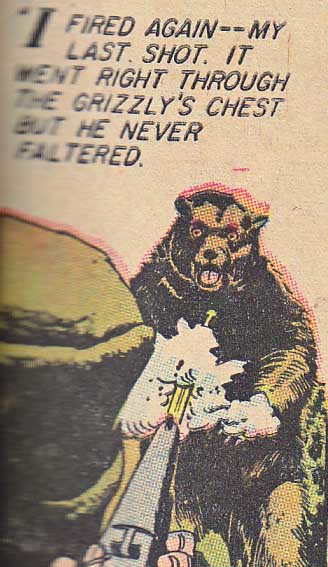
16. He got away with discharging firearms in the house, just to amuse his kids:
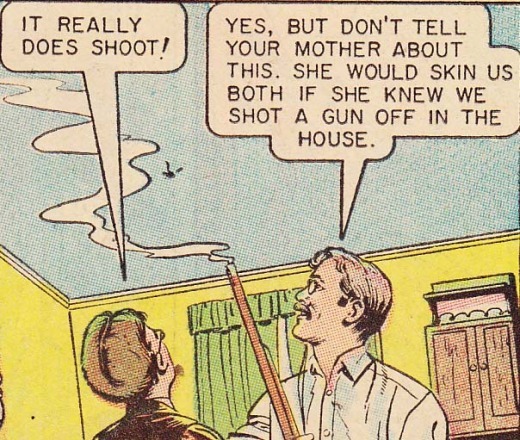
17. He relished exploring countries that had never been explored*:
*by white men
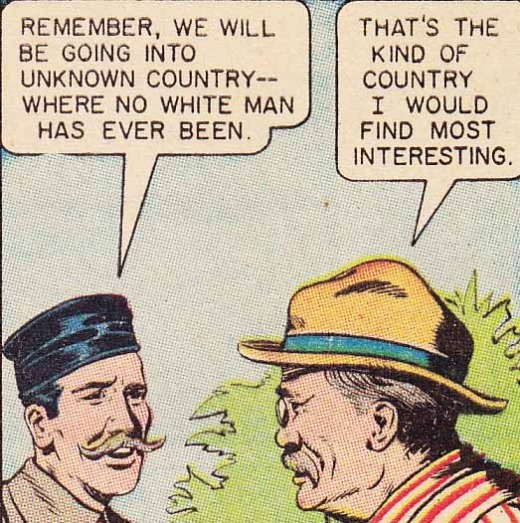
18. And he brought that adventurous spirit wherever he went:
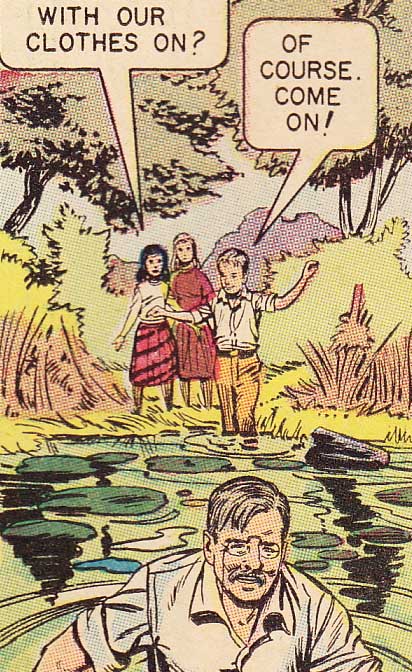
19. He was greeted by crowds everywhere:
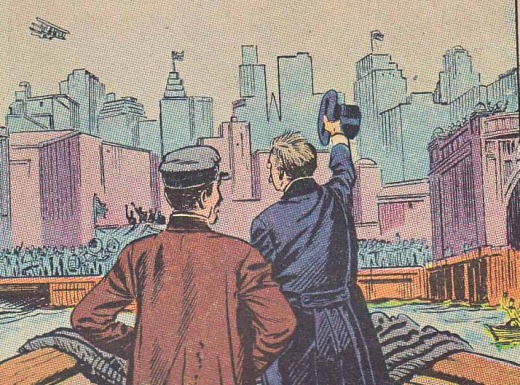
20. And it never went to his head:
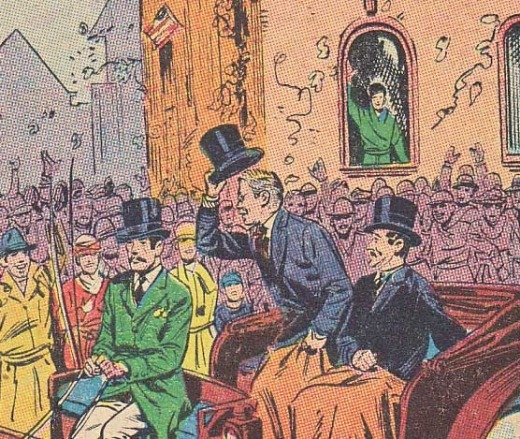
 Renaissance Man,
Renaissance Man,  Teddy Roosevelt,
Teddy Roosevelt,  author,
author,  badass,
badass,  cowboy,
cowboy,  explorer,
explorer,  politician,
politician,  president,
president,  rancher,
rancher,  soldier,
soldier,  sportsman
sportsman 

